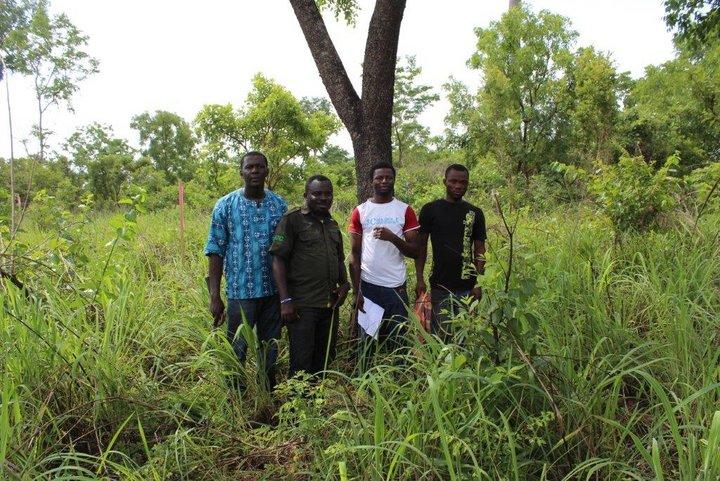Abdou-Salam Ouédraogo Fellow to map African rosewood genetic diversity in Ghana

The knowledge gap in genetic information on remaining populations of African rosewood will soon be filled through a new research project, supported by the Abdou-Salam Ouédraogo (ASO) Fellowship, awarded yearly by Bioversity International to a young forest genetic resources scientist in sub-Saharan Africa.
African rosewood, a valuable timber species, since 2014 can no longer be exported from Ghana unless the logs derive from tree plantations. The export ban is the result of an intensive, extractive logging that has taken a heavy toll on the natural populations of the species, raising serious concerns about its conservation. Meanwhile, lack of genetic information on remaining populations and absence of seed orchards, seedbanks or ex situ collections hampers the development of a conservation strategy and sustainable management practices for the species in Ghana.
This knowledge gap will soon be filled through a new research project, supported by the Abdou-Salam Ouédraogo (ASO) Fellowship, awarded yearly by Bioversity International to a young forest genetic resources scientist in sub-Saharan Africa.
We are pleased to announce this year’s ASO Fellowship winner, Mr William Bandoh, a scientist at the CSIR – Forestry Research Institute of Ghana. Mr Bandoh has a Master’s degree in environmental science and training in molecular genetics techniques and population genetics analysis.
Building on an earlier study at his Institute, this project will inform strategies for the sustainable management and conservation of African rosewood (Pterocarpus erinaceus) as timber and a community resource. The first step towards achieving this goal will be a study of the species’ genetic diversity across its distribution range in Ghana, spanning four ecological zones. By extracting DNA from leaves, Mr Bandoh will obtain genetic information that will help identify populations that are the most genetically diverse and have the most valuable traits, and hence of priority for conservation.
A second objective is to use this genetic information to develop and implement a strategy for germplasm conservation of African rosewood. Seeds of trees with interesting genetic traits will be collected and planted in seed orchards and stored in ex situ genebanks, thus filling gaps in the national collection of African rosewood. The materials will also be a resource for future tree breeding. All this will help shift the management of African rosewood in Ghana from an extractive activity to a sustainable forestry practice and an income source for local communities.
Photo: African rosewood sampling mission. Credit: W. Bandoh
